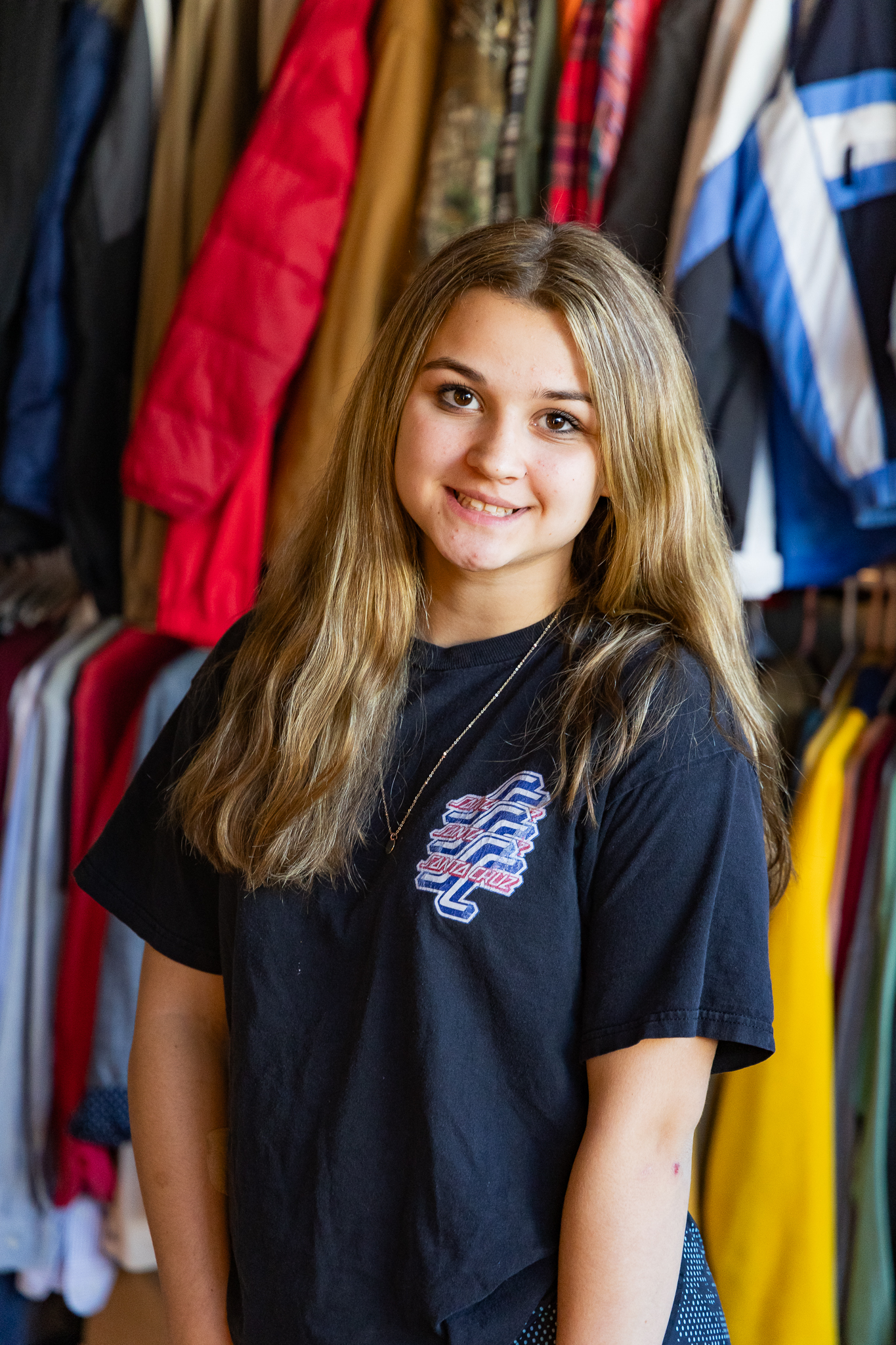Regan candidly discussed the challenges she faces, including rumors and the struggle to find her place in the school community. “I get rumored about and stuff like that. I’ve not really had a school life. But, like, I keep my head up and keep going,” she explained.
Patty, the North Buncombe Middle School Coordinator, plays a pivotal role in providing support that helps Regan to persist through unsavory moments at school. Regan noted, “If I don’t like my outfit or like I just don’t feel confident, I know Mrs. Patty will always have something here that I could try on and see. Also, for kids that are in need like, it’s pretty secretive. Like, she doesn’t really tell anyone what you get. They are always welcome to people too, you know. I feel like that makes a difference in the whole school too.” This discreet assistance helps maintain the dignity of students while meeting their needs, fostering a sense of security and belonging.
The impact of such support extends beyond material needs. Regan described the school as “like a second home, especially when you know there's drama in the family. It kinda relieves also like when you can just go in these little rooms or like just go to a teacher, and they hang out with you and stuff. It’s just really supportive. Like the teachers don’t pound you down, you know, they kinda motivate you to keep your head up and that’s it’s ok.”


